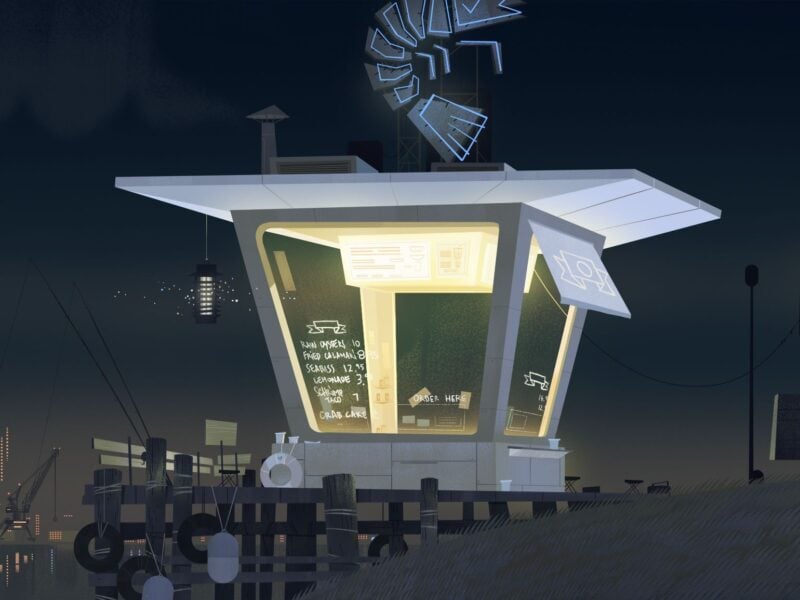
Get to know ‘The Tiny Chef Show’ Co-creator Ozlem ‘Ozi’ Akturk
Ozlem ‘Ozi’ Akturk is here to make the viewer feel something. As one of the creators of The Tiny Chef Show, she brings a sense of wonder and discovery to each episode. The show has a wonderful visual presentation that sets it apart from like-minded projects, as well as a talented roster of guest stars.
Film Daily has the chance to sit down with Akturk and discuss her career, her visual style, and her creative approach to The Tiny Chef Show. Here’s what she had to say:

Tell us about your journey into filmmaking. What did you do before becoming a filmmaker?
At a young age I got inspired by paintings and black and white photography. They had a strong influence on me. I learned composition from paintings and tried to implement it in my photography. Starting with photography helped me to learn a lot of the technical side. I had the chance to visit a workshop at an art school at the age of 16 and got an insight into experimental film making and stop motion.
They even had a Arriflex 16mm film camera, which caught my interest. Towards the end of the workshop I got hands on film equipment and I instantly felt inspired to learn more about film making and stop motion. I went to study film and animation at the Stuttgart Media University and that paved my path and dedication to become a cinematographer.
Is there any film or TV show that inspired you to enter the world of film?
I must say Twin Peaks had a big impact on me. David Lynch’s storytelling was so unique with the use of unconventional camera angles, the amazing sound design and lighting techniques. I still love to listen to the soundtrack by Angelo Badalamenti.
What was the first film you ever worked on, and what did you learn from it?
My first feature film I worked on was Turks in Space as a camera trainee, shot in Turkey. It was an amazing experience for me and I learned the most fundamental elements of filmmaking in the camera department and learned the structure of a full filming crew.
Who are your current influences?
Visual influences for me are: Larkin Seiple, Marc Singer, Tristan Oliver B.S.C., Sean Bobbit B.S.C., Newton Thomas Sigel ASC, Hiro Murai and Bong Joon-ho.

Walk us through your creative process.
To create the desired look and feel of a film, the most important step is to read the script. I always have a first read. I manifest an idea in my head after reading the script and on my second read I take notes to visualize and understand the context, mood and emotion of the scenes. This always helps to work out the lighting decisions. After that it is important to discuss the scene with the director and get more information to finalize the needs for the scene.
Do you listen to any music to help you get in a creative state of mind?
Music is such a strong medium and it always inspires me to get visual ideas. It stimulates me when I approach a scene and start lighting. It keeps me more focused and it boosts my creativity.
Do you consider yourself an indie filmmaker? If so, do you ever see yourself not being one?
I sure do. I always have been hands on and still I am. I love the freedom you have and the ability to change a scene on the go without waiting for approval. There is always room to play and to improvise. Maybe resources are limited but the freedom you have is priceless as long as you can fit it within the schedule and resources. And in the near future, I am pretty sure I will give you the same answer.
Do you have any experience with mentors? If so, would you recommend them for up-and-coming filmmakers?
Most of the DOPs I have worked under I became friends with and see them as mentors. You learn the most on a project by observing and listening. And of course I would highly recommend learning from someone you admire from their style and approach to visuals. It is important to learn from the best to grow professionally. In the end we are all sharing the same passion.

Do you think your project captures the essence of being a chef??
The show teaches cooking basics, in a simple way that kids can follow and understand what it means to cook with a recipe and a breakdown of ingredients that go into a dish. On social media we started the journey with him practicing to broaden his knowledge to be ready to have a cooking show on television.
Is there a part of the filmmaking process you prefer over the other steps?
I love working on the concept and visualizing it. But more than that I love being in production and on set actually filming the vision. It is always the most exciting part when you come together as a crew and get challenged in that creative process.
What’s your five-year plan?
Season 2 of the Tiny Chef Show. Couple more books and a movie. Develop new projects.
If any director could direct the story of your life, who would you choose and why?
The Daniels, I love how creative and surreal they make their films with the right touch of humor. I like how they always try to push their limits visually. I would love to have my story told by their artistic hand.

Who would compose the soundtrack of your life?
The Yeah Yeah Yeahs.
What’s next on the docket for you?
Getting Season 2 in production and working to expand the Tiny Chef Universe.
If you could only watch one movie for the rest of your life, what would you pick?
Cinema Paradiso, it is a wonderful homage to cinema. I highly recommend it to everyone.
What advice would you offer a younger version of yourself?
Make sure you make time to look after your physical and mental health. I learned the hard way and probably it was the arrogance of my youth that I heavily overworked my body and didn’t look out for it. Working in the Camera Department is a very physical profession. You carry a lot of heavy equipment. Holding a camera 8 hours minimum on a live action shoot takes a toll on your body. Twenty years later, I now have four screws in my back, I really can’t recommend that to anyone. Kids, make sure you watch over your health.
Tell us about your experience working with Wes Anderson?
It was definitely an interesting experience. He has his signature of extreme symmetry and therefore the majority of the lenses used were wide angle lenses. He has his vision and there is little to no room for creative playfulness. In a way I admire that he is very strict about his style and working process.
Why do you think The Tiny Chef show has captured the heart of so many Instagram users?
The Tiny Chef was born out of love and the joy we have when we make content. We wanted to document his journey in getting his own cooking show, with the ups and downs. The Tiny Chef has so much love and kindness in his heart. He is so damn cute there is no way you can escape his charm and influence. And the social media users agree, I am thankful for all their wonderful support. We have attracted mindful and wonderful humans.

How long does it take to produce 1 minute of The Tiny Chef show?
It depends on the degree of how complicated the shot is; it can be a 1-2 weeks of shooting, or a month of shooting. And add another week to do the post production. Complicated shots like multiple characters in a scene, or Chef cutting vegetables or mixing ingredients, anything where the animator is dealing with multiple elements in the frame adds time – but is worth it.
What’s your favorite camera lens?
In cinema lenses, I love Cooke lenses. For photographic lenses which we use for Stop Motion, my two favorites are the Micro Nikkor 55mm and the Micro Nikkor 105mm.
Yes or no to shooting on iPhone?
Yes, because not everyone can afford to access proper equipment or crew, but that person might have a story to tell and a vision.
What’s the hardest part about producing TV content for you?
There are many challenges involved in producing TV content and especially when you aim for preschool content. There are so many preschool rules to consider when writing scripts. Another challenge is the creativity you come up with but the budget won’t support it, that is always the biggest obstacle. We always try to produce high quality and unique visual content, but there are always hiccups on the way and unforeseen challenges happen. No matter how well you plan your production, they always seem to arise during the production process.







